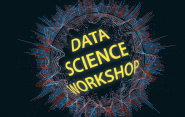Researchers Bring COVID-19 Research to First HASTE Data Workshop

The first HASTE Data Science Workshop, held Thursday, brought together researchers from numerous disciplines to present COVID-19-related research and discuss how members of the Yale community can contribute.
The series is hosted by SEAS Dean Jeffrey Brock, who also serves as Dean of Science in the Faculty of Arts and Sciences.

“Our goal, which I hope to achieve over a series of weeks, is to take the difficult situation that we find ourselves in - the pandemic and the social isolation that we’ve been forced to take - and use it as an opportunity to reach out across departments and build new connections and a new network of individuals that can attack this problem that now confronts us,” Brock said.
Brock said the idea for the workshop series, which takes place over Zoom, was partly inspired by the COVID-19 Response Coordination team (CoReCT), a multidisciplinary, multi-school response spearheaded by Nancy Brown, dean of Yale School of Medicine.
“A group of us, deans and others got together to formulate and map out a response to the pandemic that Yale could undertake and leverage its best research abilities to work against the impact that this will have on all of us,” he said.

The first presenter, Eli Fenichel, the Knobloch Family Chair of Natural Resource Economics of the Yale School of the Environment, has been studying the benefits and tradeoffs associated with social distancing long before the COVID-19 outbreak. Thursday, he discussed some of the far-reaching effects of social distancing.
“There’s a lot of relevant data out there that we might know about, you might know about, but no one has their hands on all the data and all the questions and all the problems,” he said. “There are things that might not seem like worthy academic pursuits are actually super valuable.”
Among other topics, he discussed data on how crime rates are affected by social distancing, the burden that extended school closings have on the healthcare labor force and how that in turn affects the quality of healthcare.
Forrest Crawford, associate professor of biostatistics, ecology and evolutionary biology, management, and statistics and data science, discussed how he evaluates and predicts the effect of public health interventions to prevent the spread of COVID-19.

“Last week, we had an urgent email from a colleague asking for help in planning the ICU at Yale-New Haven Hospital and help in managing the influx of COVID-19 patients,” he said, adding that they wanted to look at how quickly patients would come to the emergency department and the consequences of having too many patients for the hospital to handle. “We tried to capture the most salient features of the way that most patients flow through a hospital.”
On a less local level, he said his research group is also looking at what effect the delay in calling for a stay-at-home order has had on hospitalizations and deaths of COVID-19 patients in Florida.
John Cohn, IBM Fellow at the MIT-IBM Watson AI Research Group in Cambridge, MA, discussed how high-performance computing can assist in the fight against COVID-19.

Cohn helped assemble a collection of supercomputers at IBM, with the purpose of allowing researchers to use them for COVID-related work. His own group is using them for research related to cryogenic electron microscopes.
“They use a mix of electromechanics to take all these pictures and use AI to reassemble them, and you get a 3D model just above an atomic level,” Cohn said. The now-ubiquitous images of the COVID virus, Cohn noted, are made with these microscopes. A lot of the work is searching through the amount of data that the microscopes generate - a terabyte a day - to find what’s useful.
Ultimately, he said, they want to “build a data pipeline that would be used to not just look at the virus, but also possible therapies and how they might thwart the virus because of their particular stereochemistry.”
The next HASTE workshop takes place Wednesday, April 15, 4-5 p.m.

